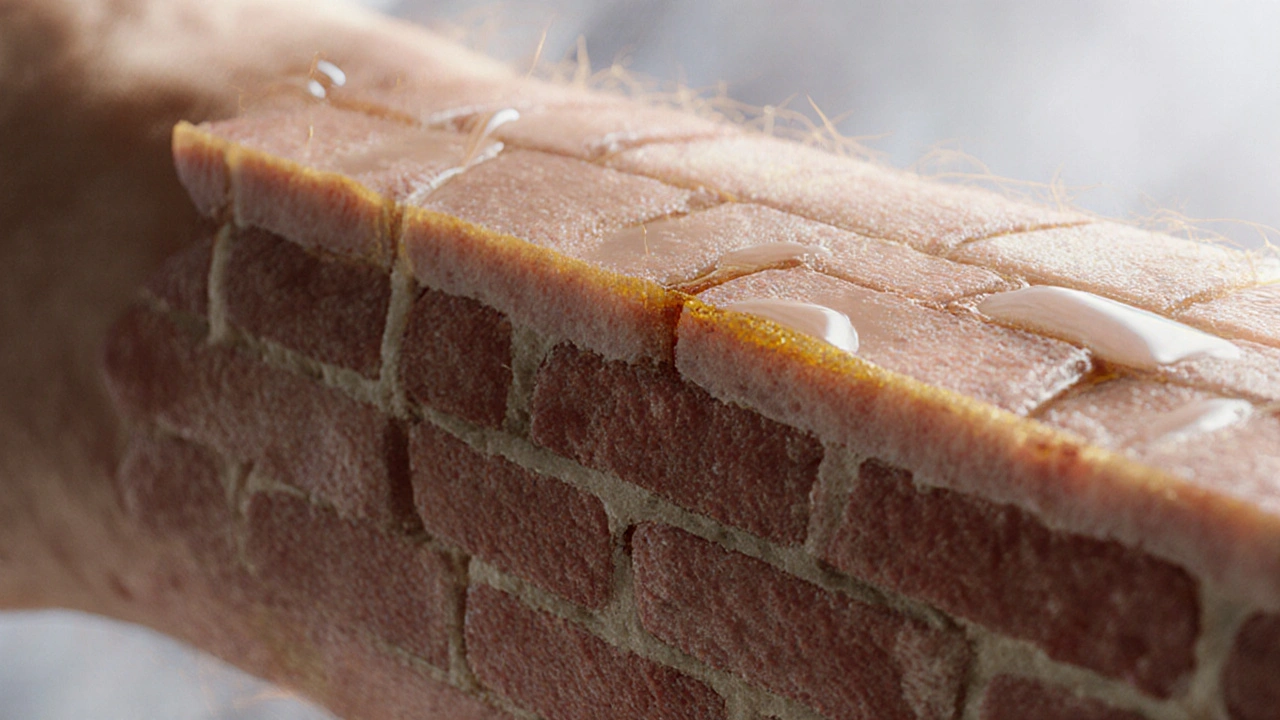Understanding Your Skin Type
When it comes to finding the perfect skincare product, knowing your skin type is essential. After all, choosing the right desonide cream can be the difference between alleviating symptoms like itching and inflammation or making them worse. Desonide is particularly favored for handling conditions like eczema or psoriasis, thanks to its anti-inflammatory properties.
So, how do you figure out your skin type? It's pretty straightforward, even if it feels a bit confusing at first. Universally, skin can be broadly categorized into a few types: normal, oily, dry, combination, and sensitive. For instance, if your skin usually feels comfortable without dryness or oiliness, that's probably normal. On the other hand, if you often deal with flaky or tight skin, dryness might be your issue. When figuring out your skin type, emphasize observation and perhaps a simple skin test – one that involves washing your face, waiting for about half an hour without applying any product, and observing your skin's behavior.
It's crucial to note that eczema and sensitive skin often go hand in hand. If you find your skin reacting with redness or irritation to many products, consider it sensitive. That helps in narrowing down the best eczema treatment approach with Desonide. With sensitive skin, you want to avoid anything overly harsh or fragrant. Similarly, if you have oily skin with acne tendencies, choose lighter formulations.
Different Forms of Desonide
There are quite a few Desonide formulations, each suited to various preferences and skin conditions. You've got creams, ointments, and lotions, each bringing its own kind of relief. But which one is right for your skin's unique needs?
Generally, Desonide cream is the go-to for many due to its balancing texture – not too heavy, not too light. It's ideal for people who want something absorbent yet moisturizing. Ointments, on the other hand, offer a more occlusive barrier, making them excellent for extremely dry areas that need extra protection. It's sticky and can sometimes feel like it's lingering on the skin longer than you'd want, yet it provides profound hydration.
Lotions are usually the lightest, which means they get absorbed pretty quickly. If your skin leans towards oily or you're managing something like seborrheic dermatitis on the scalp, lotions might become your best bet. Bear in mind that everyone's skin reacts differently. Always pay attention to how a specific Desonide product feels when you first apply it – any burning or itching, switch it out.

Safety Tips and Considerations
Desonide is well-tolerated, but that doesn't mean you shouldn't be cautious. First-time users should perform a patch test. Apply a small amount on a less visible area. This test helps to see if your skin has any adverse reactions before you slather it all over.
Another critical aspect to consider is frequency. Desonide isn't your regular moisturizer, meaning moderation is key. A dermatologist typically suggests applying a thin layer only twice a day. Overusing can irritate the skin, defeating the product's purpose. Follow your healthcare provider's advice and instructions clearly.
It's also worth noting how long you can use it. While Desonide is a gentle steroid compared to others, it's a steroid nonetheless. Generally, two-week usage spans are advised, after which a re-assessment of your skin's needs is recommended.
What to Look Out For
While Desonide can be a soothing solution for inflamed skin, stay vigilant about certain warning signs. If your skin ends up feeling unusually thinned or experiences a persistent burning sensation after application, those are definite red flags.
In rare cases, some users might experience a paradoxical reaction, where instead of alleviation, the red, itchy patches worsen. If that describes your situation, discontinue use and consult a dermatologist.
Remember that every skin journey is unique. Sometimes the product can work wonders for a while and then suddenly stop being effective. That's merely a sign it's time to reassess your strategy with your healthcare provider. Keeping regular check-ups ensures you're playing it safe with treatments, especially when dealing with chronic skin issues.


xie teresa
March 28, 2025 AT 13:09I totally get how frustrating it can be to sort through all the different Desonide options. It’s great that you’re paying attention to your skin’s signals and doing the patch test first. If you have a mix of oily and dry areas, a light cream often works best because it hydrates without feeling heavy. And don’t forget to keep your routine simple – gentle cleanser, moisturizer, and then the Desonide as directed. Listening to how your skin reacts will guide you to the perfect match.
Srinivasa Kadiyala
April 7, 2025 AT 11:29Everyone says creams are “balanced,” but really? they’re just marketing fluff!!!
Alex LaMere
April 17, 2025 AT 08:49The article glosses over the fact that many over‑the‑counter Desonide creams contain unnecessary additives. Stick to prescription‑grade formulations for consistent results.
Dominic Ferraro
April 27, 2025 AT 06:09Choosing the right Desonide product can feel overwhelming, but you’ve already taken the biggest step by learning about your skin type. For those with normal to slightly oily skin, the lightweight lotion formulation is usually the sweet spot because it spreads easily without leaving a greasy residue. If you’re battling dry patches or eczema‑prone areas, the ointment’s occlusive barrier delivers that extra hydration punch that creams sometimes miss. Creams sit nicely in the middle, offering a balance of absorption and moisture that works for many combo‑skin folks. Remember to start with a patch test on a discreet spot – this simple precaution can save you a lot of discomfort later. Apply a thin layer, typically twice a day, and resist the urge to over‑apply just because the cream feels soothing. Overuse is a common pitfall; even gentle steroids can thin the skin if you keep them on for weeks on end. Most dermatologists recommend a two‑week trial period, after which you should reassess with your doctor. If you notice persistent burning, increased redness, or your skin feels unusually thin, stop using it immediately and seek professional advice. For sensitive skin, steer clear of added fragrances or harsh preservatives; look for “fragrance‑free” labels. Some brands also offer hypoallergenic versions that pair well with other eczema treatments. When you switch between product types – say from cream to lotion – give your skin a day or two to adjust between applications. Keep a simple diary of how your skin reacts: date, product used, and any sensations you notice; this log can be incredibly helpful for your dermatologist. If you’re dealing with conditions like seborrheic dermatitis on the scalp, a light lotion can be applied after shampooing to calm inflammation without weighing hair down. Finally, stay consistent with your overall skincare routine – gentle cleansing, moisturization, and sun protection all support the effectiveness of Desonide. You’ve got this, and with a bit of trial and error you’ll land on the perfect formulation for your unique skin.
Jessica Homet
May 7, 2025 AT 03:29Ugh, I’ve tried that ointment and it felt like I was smearing butter on my skin-so sticky! It might work for super dry patches, but the texture can be a nightmare. If you’re not into that mushy feel, keep looking. Seriously, don’t settle for something that makes you cringe.
mitch giezeman
May 17, 2025 AT 00:49Hey folks, just a heads‑up: always check the expiration date on your Desonide tube. Using an expired product can reduce its effectiveness and might irritate the skin. Also, store it in a cool, dry place to maintain its potency. If you have any doubts, a quick call to your pharmacy can clear things up.
Kelly Gibbs
May 26, 2025 AT 22:09Sounds like a solid plan.
KayLee Voir
June 5, 2025 AT 19:29It’s important to stay patient while your skin adjusts to a new treatment. Consistency is key, but so is listening to any signs of irritation. If you notice any unusual reactions, pause and consult your dermatologist. You’re doing the right thing by researching before you decide.
Bailey Granstrom
June 15, 2025 AT 16:49While the guide is helpful, it forgets to mention that some people develop resistance after repeated use. Switching between cream and lotion periodically can mitigate that risk.
Melissa Corley
June 25, 2025 AT 14:09lol i dont think that matters r u serious 😂🤷♀️